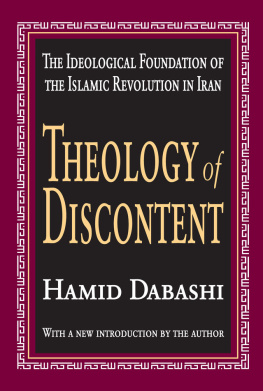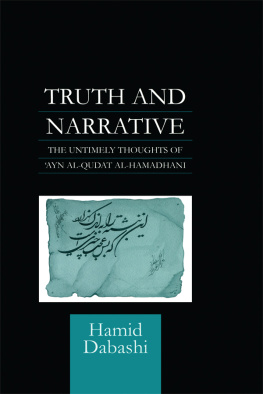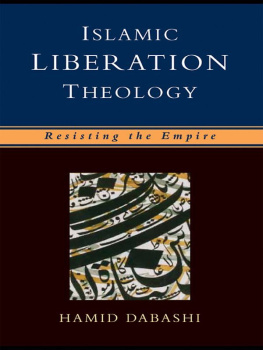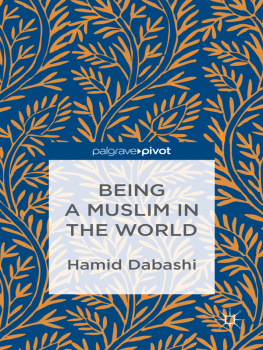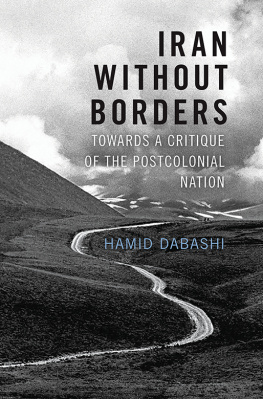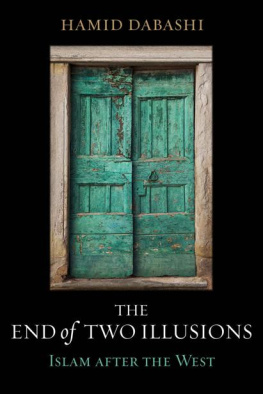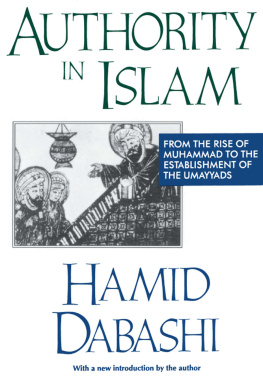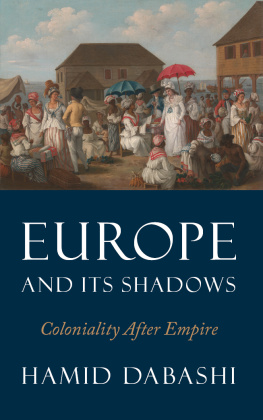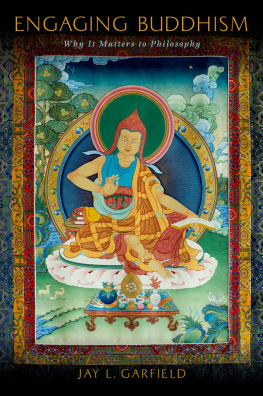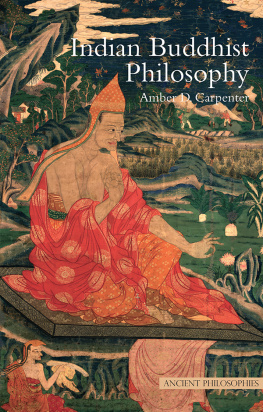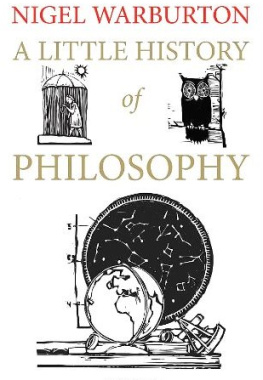
Dabashis book is both a panoramic critique of, and a revolt against, dominant forms of knowledge. It is characteristically lucid and accessible. A worthwhile read.
WAEL HALLAQ, Columbia University
Dabashi eloquently articulates the intellectual journey of a whole generation of postcolonial thinkers: its findings must be heard.
ELIZABETH SUZANNE KASSAB, author of Contemporary Arab Thought
Can Non-Europeans Think? collects Hamid Dabashis important provocations on issues ranging from postcolonialism to democracy. These are pieces to wrestle with, to think about, to discuss and debate. Reading Dabashi is like going for an extended coffee with a very smart friend.
VIJAY PRASHAD, author of The Poorer Nations: A Possible History of the Global South
Can non-Europeans think? The simple answer is yes. The more complicated answer is also yes, but requires that the reader dismantles the very notion of West and European. This is a fabulous read.
ZILLAH EISENSTEIN, author of Sexual Decoys and The Audacity of Races and Gender
ABOUT THE AUTHOR
Hamid Dabashi is the Hagop Kevorkian Professor of Iranian Studies and Comparative Literature at Columbia University. Born in Iran, he received a dual Ph.D. in the sociology of culture and Islamic studies from the University of Pennsylvania, followed by a postdoctoral fellowship at Harvard University. Dabashi has written and edited many books, including Iran, the Green Movement and the USA and The Arab Spring, as well as numerous chapters, essays, articles and book reviews. He is an internationally renowned cultural critic, whose writings have been translated into numerous languages.
Dabashi has been a columnist for the Egyptian Al-Ahram Weekly for over a decade, and is a regular contributor to Al Jazeera and CNN. He has been a committed teacher for nearly three decades and is also a public speaker, a current affairs essayist, a staunch anti-war activist and the founder of Dreams of a Nation. He has four children and lives in New York with his wife, the Iranian-Swedish feminist scholar and photographer Golbarg Bashi.
CAN NON-EUROPEANS THINK?

HAMID DABASHI
With a foreword by Walter Mignolo

For
Marwan Bishara
who thinks otherwise
Can Non-Europeans Think? was first published in 2015 by Zed Books Ltd, Unit 2.8, The Foundry, 17 Oval Way, London SE11 5RR, UK
This ebook edition was first published in 2015
www.zedbooks.co.uk
Copyright Hamid Dabashi 2015
The right of Hamid Dabashi to be identified as the author of this work has been asserted by him in accordance with the Copyright, Designs and Patents Act, 1988
Designed and typeset in Monotype Dante
by illuminati, Grosmont
Index by John Barker
Cover designed by Kika Sroka-Miller
All rights reserved. No part of this publication may be reproduced, stored in a retrieval system or transmitted in any form or by any means, electronic, mechanical, photocopying or otherwise, without the prior permission of Zed Books Ltd.
A catalogue record for this book is available from the British Library
ISBN 9781783604203 hb
ISBN 9781783604197 pb
ISBN 9781783604210 pdf
ISBN 9781783604227 epub
ISBN 9781783604234 mobi
Contents
by Walter Mignolo
This is my third book published by Zed Books, and in a way they constitute a trilogy lets call them The Intifada Trilogy, in honor of the Palestinian national liberation movement. Publication of the three books would not have been possible without the caring competence of two extraordinary editors at Zed with whom I have worked, along with their colleagues, to get the books into their final shape. Tamsine ORiordan was my editor for Iran, the Green Movement and the USA: The Fox and the Paradox (2010) and The Arab Spring: The End of Postcolonialism (2012). For this third volume, Kim Walker has been instrumental in carefully crafting a book out of an inordinate amount of submitted material. She saw through it a succession of themes and ideas now visible in her editorial ordering of the book, which is entirely indebted to her editorial skills.
I propose calling the books The Intifada Trilogy because at the root of each is the extended logic of the Palestinian intifada as the archetype of all transnational liberations in which the entire spectrum of contemporary liberation geography is evident and invested. The fierce urgency of the unfolding events over the last few years has required a kind of critical thinking that furnishes the appropriate narrative rhyme and rhythm; having found myself in tandem with these events, I have been blessed with two deeply cultivated, caring, and competent editors without whom the three books would never have found their dynamic momentum. I thank Tamsine ORiordan and Kim Walker for the generosity and grace of their interest and trust in these three books.
Candice Bridget Lukasik was my research assistant when I was working on the initial drafts of this book. I owe her warm gratitude for diligently collecting my writings together from their various sources. My current research assistant Hawa Ansary was equally helpful during the latter part of the project when the book was being prepared for publication. Nasir (Naz) Yousefzai Khan, my Al Jazeera editor for many years, and many of his colleagues up to my current editor Tanya Goudsouzian, have been instrumental in helping me shape and publish the contours of the material that now make up the book. It was for Naz that I initially wrote the essay Can Non-Europeans Think? Without his enthusiasm and untiring support I would not have known the larger context of the issues raised in that essay. Simon Critchley and Peter Catapano for the New York Times, Richard Galant of CNN, and Mona Anis and Rasha Saad at Al-Ahram Weekly have been key to seeing the material now gathered in this book through to publication in their respective media.
Finally, to my dear friend and colleague Walter Mignolo goes my everlasting gratitude for having graciously agreed to preface this book with his utterly brilliant critical Foreword. Can non-Europeans think? You need not read beyond his Foreword if you really await an answer to that rhetorical question.
Hamid Dabashi, New York, October 2014
La Europa que consider que su destino, el destino de sus hombres, era hacer de su humanismo el arquetipo a alcanzar por todo ente que se le pudiese asemejar; esta Europa, lo mismo la cristiana que la moderna, al trascender los linderos de su geografa y tropezar con otros entes que parecan ser hombres, exigi a stos que justificasen su supuesta humanidad.
Leopoldo Zea, La filosofa americana como filosofa sin ms (1969)


Ali Shariati, Mission of a Free Thinker (197071)
I take this opportunity to continue the conversation started in Al Jazeera a while ago, prompted by Santiago Zabalas essays on Slavoj iek, followed by Hamid Dabashis Can Non-Europeans Think?, reprinted in this volume. Dabashi picked up in the first paragraph of Zabalas essays on iek an unconscious dismissal that has run through the history of the coloniality of power in its epistemic and ontological spheres: the self-assumed Eurocentrism (the world seen, described and mapped from European perspectives and interests).
Next page

